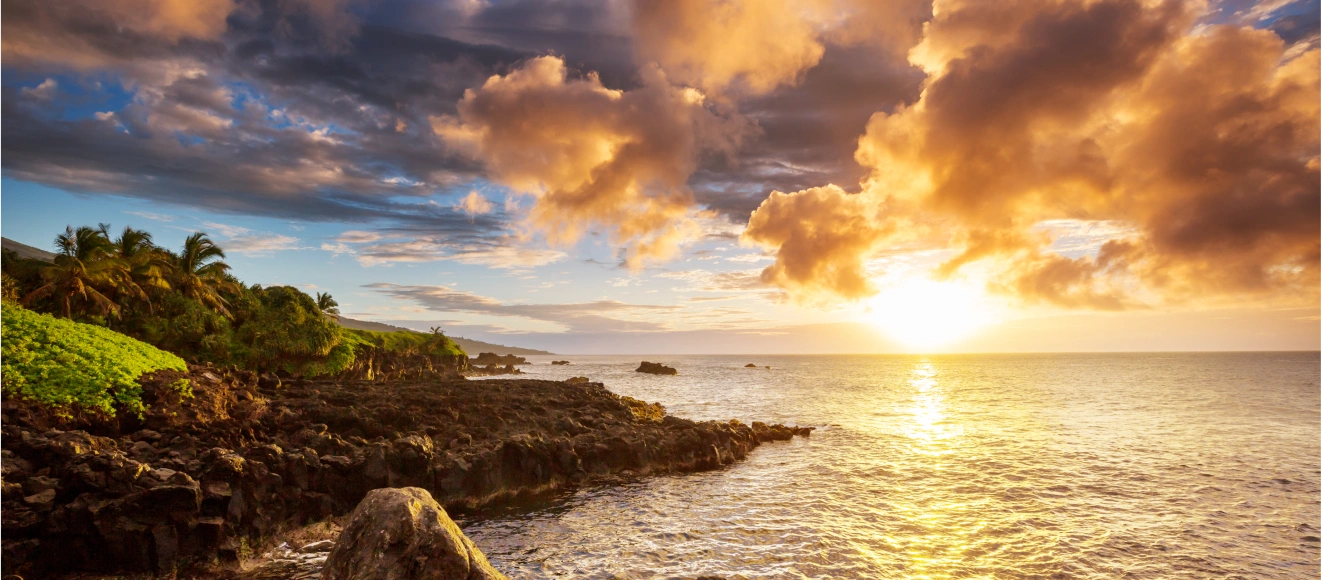Maui, often referred to as the "valley isle," is indeed a diverse and captivating destination
within the Hawaiian chain, boasting a rich tapestry of geological features and
microclimates.
At its heart lies a massive central valley, flanked by two distinct mountain ranges. To the
west are the extinct West Maui Mountains, which have been dormant for approximately
a million years. To the east, towering over the coastline, is Mount Haleakala, a dormant
volcano that last erupted in the 1790s. Despite its current dormancy, Haleakala is
considered active and may show signs of volcanic activity in the future.
Maui County encompasses not only the main island of Maui but also three other
islands: Molokai, Lanai, and Kahoolawe, each sharing the same underwater mountain
foundation. Additionally, the famous Molokini crater, located offshore, is renowned for
its exceptional snorkeling opportunities.
The West Maui Mountains rise to approximately 5,000 feet, while Haleakala soars to
over 10,000 feet above sea level, creating a dramatic contrast in elevation and
landscape. The summit of Haleakala is famous for its immense crater, which descends
3,000 feet and spans approximately 21 miles in circumference, offering breathtaking
views and unique hiking experiences.
Maui's varied topography contributes to its diverse microclimates, with rainfall patterns
varying significantly across the island's relatively short 48-mile length. Leeward
coastlines are characterized by white sand beaches and minimal rainfall, while
windward coasts receive abundant rainfall, sometimes exceeding 100 inches annually,
resulting in lush tropical rainforests.
This diversity makes Maui a paradise for outdoor enthusiasts, offering opportunities for
everything from sunbathing on pristine beaches to exploring verdant rainforests and
hiking through otherworldly volcanic landscapes. Whether seeking relaxation or
adventure, Maui's natural beauty and varied landscapes have something to offer for
every traveler.
Here are the Categories of Activities found on Maui:


